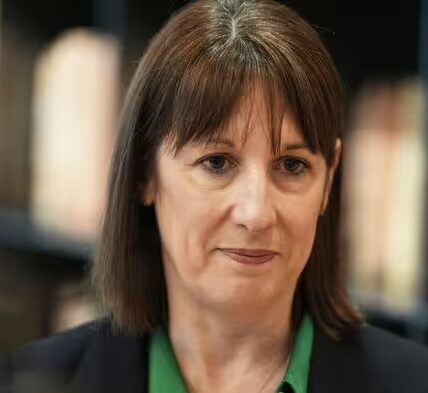With Rachel Reeves likely to make drastic changes to help our ailing economy in her Autumn Budget, should the ‘triple-locked’ State Pension be cut?

UK Chancellor of the Exchequer Rachel Reeves (Image: Getty)
One of the UK’s top economists has warned Britons we face a “twin-pronged fiscal headache” this winter as he suggests we may need to drop the pension ‘the triple lock‘ to reduce debt. Roger Bootle is the Senior Independent Advisor and Non-Executive Director of Capital Economics, which he founded in 1999. He was once the Group Chief Economist of HSBC and an ex-specialist Adviser to the House of Commons Treasury Committee.
Now, ahead of Chancellor Rachel Reeves’s long-awaited Autumn Budget, he’s warned that the UK must make some tough choices if we want to turn our stagnating economy around. Bootle says one problem is the increasing burden of rising pension costs on the public purse, adding: “The triple lock, under which the state pension is increased by the higher of the rate of price inflation, the rate of increase of average earnings, and 2.5 %, is an abomination. It has to be dropped.”
Explaining our nation’s “twin-pronged fiscal headache”, Bootle said the first prong is ‘debt’ and the second is ‘tax’.
Bootle reveals that ideally, a “surge in economic growth” would be the best way to solve the problem but that “Government policies are not doing anything to bring about this result.”
He adds: “Quite the opposite. So the only sensible course of action is to reduce public spending.
“I suppose that the Government could proceed by salami-slicing – cutting a bit here and there, across the whole gamut of public spending. But this is hardly the best way to proceed.”
Bootle then explains in his article in the Daily Telegraph that there are “four main culprits behind the recent increase in public spending: pensions, welfare, health, and debt interest. We are unlikely to deliver major cuts in public spending without addressing these four areas.”
He adds: “The way to reduce our spending on debt interest is to reduce debt and to persuade the markets that we are now so fiscally responsible that they will lend to the British Government at lower rates.
“So we must concentrate our efforts on the other three. In each case, the measures we propose will doubtless cause squeals of anguish, starting with pensions.”
And he is not only suggesting we axe the triple lock but the UK should even “go further” and suggests “the pension is frozen for three years and thereafter increases in line with the Consumer Price Index (CPI).”
He admits: “I realise that this will bring forth angry protests from the serried ranks of Disgusted from Tunbridge Wells for singling out pensioners for punishment.
“But the welfare bill is also due for some substantial cuts. We need both to reduce the number of claimants by limiting eligibility and to reduce the real value of benefits.
“Our report suggests that working-age benefits be frozen for three years and subsequently rise in line with the CPI, mirroring the treatment of pensions.
“How much money should we be trying to save overall? A suitable objective is to reduce public spending by 2030 by something like 3 % of GDP, bringing it down to just over 40 % of GDP.
“But we shouldn’t stop there. A realistic aim is to get public spending down within 10 years to about 35 % of GDP, which is where it was at its low point at the end of the Thatcher government.”
